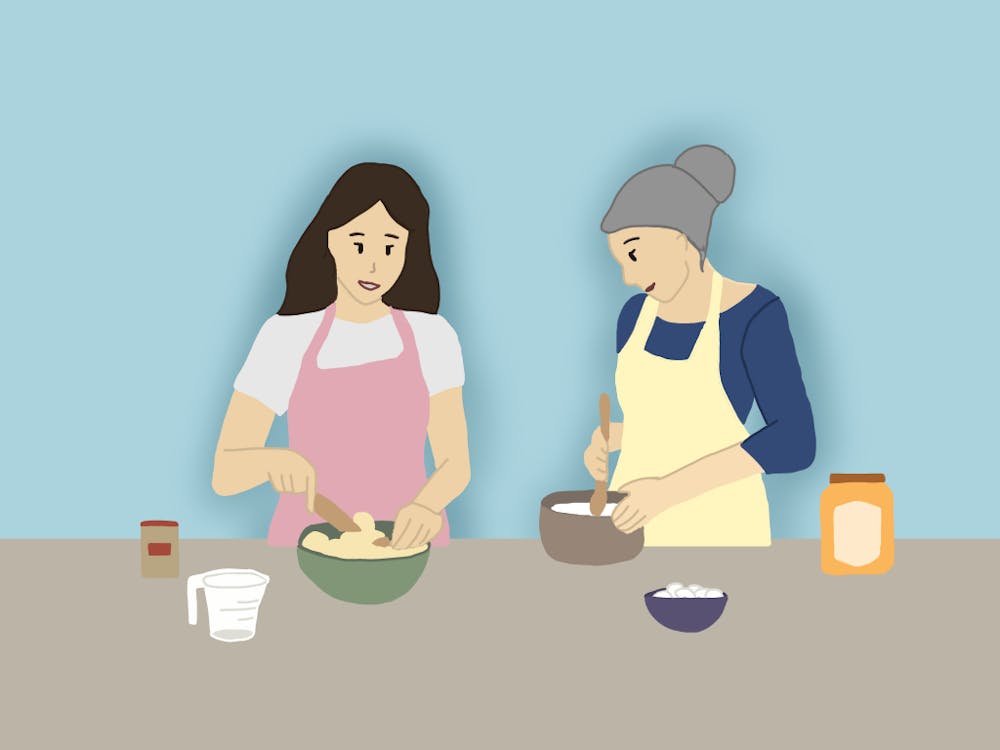There are many reasons I enjoy going to school in Charlottesville: the sun setting purple over the Blue Ridge Mountains, the sustained rumbling of a train as it chugs past my apartment, bluegrass music, the dogwood trees in spring and, yes, even Mr. Jefferson. Beyond the sites and sounds of Charlottesville, however, I am much more interested in its smells and tastes. I would go so far as to say that I am in love with the flavors and history of Southern food. When I write "love," I am not being trite, nor am I at a loss for a more imaginative word. I am veritably, corporally and torridly "in love" with Southern food. Yes, I'm serious.
Consider, for instance, that I often lay awake at night imagining biting into a biscuit -- the feathery layers of pastry compressing themselves into a starchy mass of buttermilk goodness between my upper lip and front teeth -- or that I am physically unable to control myself in the presence of sweet potato pie. Then there's the fact that the guilt I feel after overindulging in Wayside Chicken is oftentimes so consuming that I renounce Southern cuisine altogether ... only to come crawling back six vegetable-filled meals later.
You can imagine my delight when I picked up the January issue of Gourmet magazine focusing on Southern cooking for the plane ride back to Virginia. In it, I read of buttermilk, pork, grits, whiskey and pecans -- and I even salivated over a description of squirrel stew. The issue was so tantalizing that, in the course of one plane ride, any regret I had felt about leaving California was replaced by intense excitement at the prospect of loving myself with some Southern food. It was neither the recipes nor the glossy picture of a majestic, cloudlike coconut cake that intrigued me most, however; It was three articles concerning the famed Southern chef, Edna Lewis, that made me most nostalgic for Virginia.
It is easy to become enthralled by Lewis, who -- among numerous attractive character details -- was a bohemian starlet in late 1940s New York City. As the chef at Café Nicholson, Lewis cooked for and was friends with the likes of Tennessee Williams and Truman Capote, was a card-carrying member of the Communist Party and lived with her protégé (a man less than half her age) for the last four years of her life. If only I could one day dream of being so cool ...
Gourmet got its lucky little hands on an unpublished essay of Lewis' titled "What is Southern?". Her culinarily inspired answer to this question was so captivating that I immediately went out and purchased one of Lewis' four cookbooks. I decided on the second and most popular among them: "The Taste of Country Cooking." Originally published in 1976, the book is organized by season and is full of anecdotes and memories of life growing up a half-hour drive from Charlottesville in Orange County. It is a wonderful homage to a time when living off what was in season and local was not a political or health choice but a source of fulfillment and community pride. In it, Lewis writes of her childhood in Freetown, Va., a town founded by her grandfather and two other families of freed slaves, with vivid and olfactory detail. She writes of the pink haze of dawn over the Blue Ridge Mountains, feasts on Emancipation Day, horse races at Montpelier and the hatching and rearing of baby chickens in the family kitchen. The effect of reading her stories is a confusing combination of feeling firmly rooted in the familiar scenery of central Virginia while at the same time being transported to a distant agriculturally independent past.
In the introduction to "The Taste of Country Cooking" Lewis notes that the bond she shared with her family and community centered largely on food -- eating it, making it and growing it -- and that her purpose in writing the book was to preserve a time and place that held a special place in her heart.
Taking my cue from Ms. Lewis, I decided to cook a Southern Winter's feast and share it with some friends. The point is not that the fried chicken turned out rather well (though the key is to soak it in buttermilk), but that I prepared and shared food with people I like and that we bonded over it. So, whether you, like me, have a warm spot in your heart for someone else's regional cuisine or are fiercely loyal to your mother's baked ziti, I think you'll find that a person's "food history" is a meaningful and easy way to connect with them. And hey, if the conversation doesn't seem to be going anywhere, remember: Everyone's ancestors fried something.
Chelsea is a guest columnist.






